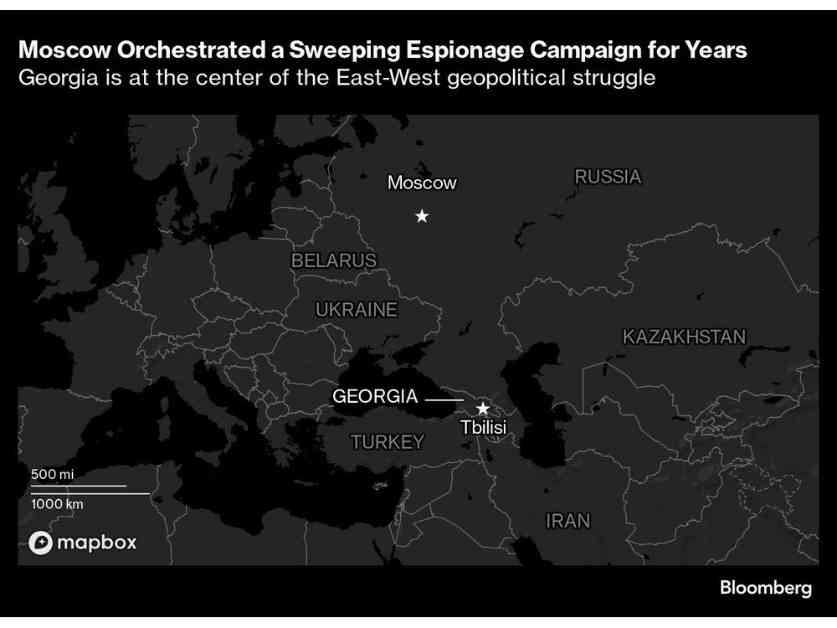Russian spies have been conducting an extensive espionage and hacking campaign in Georgia for several years, infiltrating key government institutions and major companies. The Foreign Ministry, Finance Ministry, central bank, as well as energy and telecommunications providers were all targeted by Russian intelligence. This operation allowed them to gain access to critical infrastructure, such as electricity companies, oil terminals, and media platforms, between 2017 and 2020.
Georgia, a crucial link between Europe and Asia, has been a focal point in the geopolitical struggle between East and West for many years. The recent revelations of the extent of Russian infiltration come just before the country’s upcoming elections. The documents reveal the severity of the attacks and the level of Kremlin influence in Georgia, a nation that has been striving to align with the West by seeking EU and NATO membership.
The hacking operations, which have been ongoing for years, have raised concerns about Russian interference in Georgia’s electoral process. This is not the first time Russia has been accused of meddling in foreign elections, with previous allegations of interference in the US election in 2016. The US and the EU have condemned Russia’s actions and warned of the potential consequences of such cyberattacks.
The Georgian government’s crackdown on civil society groups, which has been labeled as “Kremlin-inspired,” has strained relations with Western allies. The government’s use of a “foreign agent” law to monitor NGOs and media outlets led to protests and sanctions from the EU and the US. Georgia’s refusal to support sanctions against Russia has further complicated the situation, with fears of escalating tensions between Georgia and Russia.
The hacking campaign conducted by Russian intelligence agencies gave Moscow the ability to eavesdrop on Georgian officials, access sensitive data, and potentially disrupt vital services like power and communications networks. The extent of the infiltration, including attacks on the Central Election Commission, media organizations, and energy companies, highlights the serious security threats posed by cyber espionage.
As Georgia prepares for parliamentary elections, the risks of further cyber-attacks and interference in the electoral process loom large. The potential for Russia to manipulate critical infrastructure and influence political outcomes underscores the need for increased cybersecurity measures and international cooperation to safeguard Georgia’s sovereignty and democratic processes. The recent revelations serve as a stark reminder of the ongoing threats posed by state-sponsored cyber espionage and the importance of protecting national security in the digital age.






















